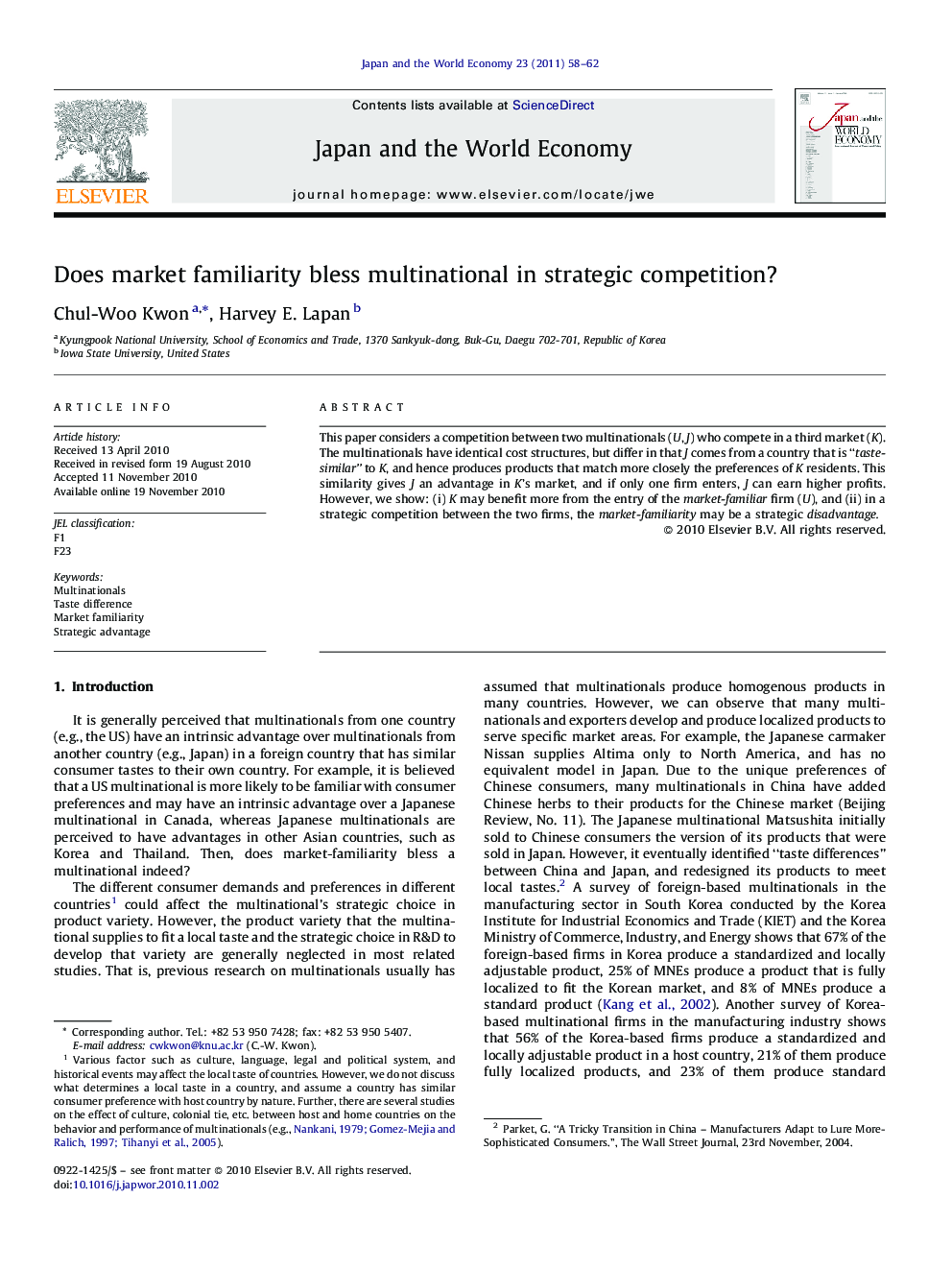| Article ID | Journal | Published Year | Pages | File Type |
|---|---|---|---|---|
| 5086274 | Japan and the World Economy | 2011 | 5 Pages |
This paper considers a competition between two multinationals (U, J) who compete in a third market (K). The multinationals have identical cost structures, but differ in that J comes from a country that is “taste-similar” to K, and hence produces products that match more closely the preferences of K residents. This similarity gives J an advantage in K's market, and if only one firm enters, J can earn higher profits. However, we show: (i) K may benefit more from the entry of the market-familiar firm (U), and (ii) in a strategic competition between the two firms, the market-familiarity may be a strategic disadvantage.
Research highlightsⶠThis paper develops a strategic model between two firms to consider whether, when trying to sell in a third country, the firm from a country that is “taste-similar” to market country has an advantage over the firm from the more dissimilar country. ⶠHost country may benefit more from the entry of the market-familiar firm. ⶠIn a strategic competition between the two firms, the market-familiarity may be a strategic disadvantage.
